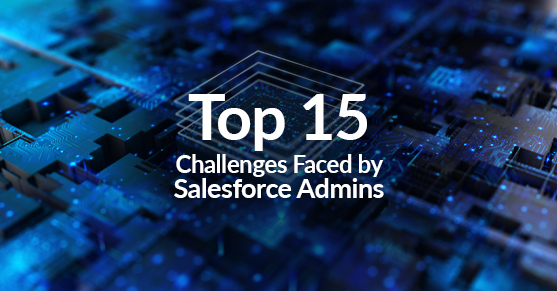A Salesforce admin is an important position that can greatly benefit an organization by ensuring the platform’s efficiency and effectiveness. Here are the top 15 challenges these admins face:
- Data Management: Salesforce admins often struggle with keeping data clean, accurate, and up-to-date. This can include dealing with duplicate records, ensuring data quality, and enforcing data governance policies.
- User Adoption: One of the biggest challenges faced by Salesforce admins is getting users to adopt the platform. This can involve creating training materials, providing ongoing support, and encouraging engagement among users.
- Integration: Salesforce is often used alongside other tools, such as marketing automation platforms, e-commerce platforms, and accounting software. Integrating these tools with Salesforce can be challenging, especially when data needs to be shared between systems.
- Security: Ensuring the security of Salesforce data is a critical responsibility for Salesforce admins. This can include managing user roles and permissions, setting up encryption, and monitoring for potential breaches.
- Customization: Salesforce is highly customizable, but making customizations can be challenging, especially for admins without a lot of programming experience. This can include creating custom objects, custom fields, custom tabs, and custom workflows.
- Performance: Salesforce performance can be affected by the amount of data and customizations in the system. Salesforce admins must keep an eye on the performance of the system and take steps to optimize it.
- Backup and Recovery: Ensuring the availability of data is crucial, and it’s the responsibility of the Salesforce admin to make sure that the data is backed up and recoverable in case of an emergency.
- Reporting and Analytics: Creating reports and dashboards that provide valuable insights can be a challenge for Salesforce admins, especially when working with large amounts of data.
- Mobile Compatibilities: With more and more employees working remotely, making sure that Salesforce is mobile-friendly can be a challenge. This can include optimizing the mobile experience, testing on different devices, and providing support for offline usage.
- Compliance: Salesforce admins are often responsible for ensuring that their organization’s Salesforce implementation is compliant with regulations and industry standards.
- Scalability: As a business grows, Salesforce must grow with it. Salesforce admins must ensure that the platform can handle an increasing number of users and large amounts of data.
- Governance: Salesforce administration involves many different roles and responsibilities, and it can be challenging to keep track of everything. This is especially true for large organizations with multiple Salesforce instances.
- Managing Updates: Salesforce releases updates frequently and it’s the responsibility of Salesforce admin to keep track of the changes and implement them in a timely manner.
- Training: Salesforce admins are often responsible for training users on the platform, which can be challenging when dealing with a diverse user base.
- Managing the Development Cycle: The Salesforce development cycle can be challenging, especially when it comes to testing, deploying, and troubleshooting. Salesforce admins are often responsible for managing the development cycle, which can be time-consuming.
It’s important to note that Salesforce is a powerful tool, and it comes with certain complexities. Salesforce admins often face challenges, but with experience and best practices, they can manage them.
Please contact us with any questions you may have about our Salesforce Admin Services.

